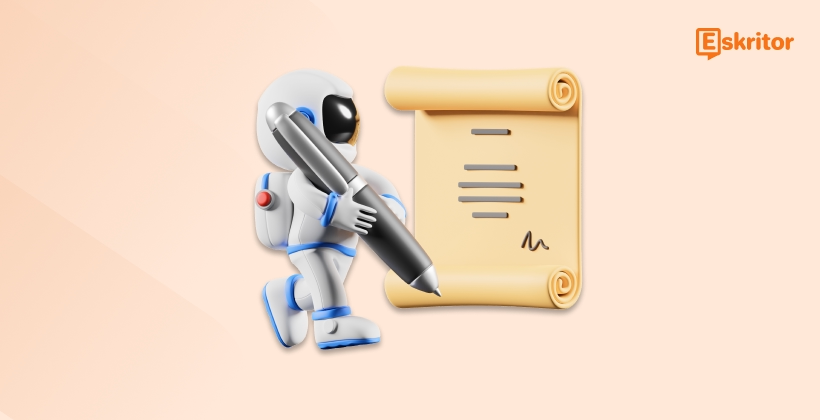The Future of AI Writing Technology Explained
The Future of AI Writing Technology Explained
Blog Article
Mastering Content with AI Editing Tools
As synthetic intelligence (AI) evolves, it continues to revolutionize exactly how we method modern modifying practices. From syntax correction instruments to advanced material technology tools, AI Editing is reshaping just how authors, writers, and makers improve their work. This blog considers the position AI plays in contemporary modifying and the affect it's across industries.

AI-Powered Resources Major the Demand
AI-powered resources are becoming an indispensable section of modifying workflows. Software fueled by organic language handling (NLP) and equipment understanding is able to do tasks like grammar checks, stylistic ideas, and phrase restructuring with incredible rate and accuracy.
For example, AI-based grammar checkers may recognize mistakes that the human eye might overlook, such as for instance subject-verb deal problems or lost modifiers. Likewise, type improvements developed by AI make certain that tone and movement arrange with the intended audience, which can be invaluable for professional editors.
These resources are not only limited to traditional grammar corrections. They can handle improving readability, transforming inactive style to productive voice, and even paraphrasing entire paragraphs without changing the meaning.
Performance Meets Time Savings
Studies show that the usage of AI resources can lower modifying time by around 30%. In place of poring around every word manually, editors may emphasis their initiatives on creative and strategic elements of content. That change enables experts to handle higher amounts of text in shorter periods, which is specially useful for industries like writing and electronic marketing.
Also, predictive AI characteristics can highlight continuing problems, supporting writers enhance their abilities over time. For organizations, that equals less assets allocated to revisions and more refined outputs from the comfort of the start.
Increasing Accessibility and Globalization
AI's role in modern editing extends beyond efficiency. Sophisticated interpretation and localization tools allow builders to adapt material easily for world wide audiences, breaking down language barriers with precision. This engineering ensures that the exact same meaning can resonate with countries world wide while preserving their authenticity.
AI also improves inclusivity requirements by improving availability in content. For example, formulas can identify potentially non-inclusive language and suggest alternatives. This potential allows authors to improve writing so that it resonates with varied audiences.

Striking a Balance Between AI and Human Imagination
While AI excels in pace and precision, it doesn't replace human editors. Machines frequently lack the capability to read nuance, emotion, or ethnic context fully. The ideal program mixes AI's efficiency with human creativity and information, causing really extraordinary work.
By leveraging these systems in modern editing methods, designers and writers alike can create high-quality material that aligns with the fast-paced demands of today's digital world. AI could be the potential of modifying, however the individual feel can be needed for storytelling and connection. Report this page